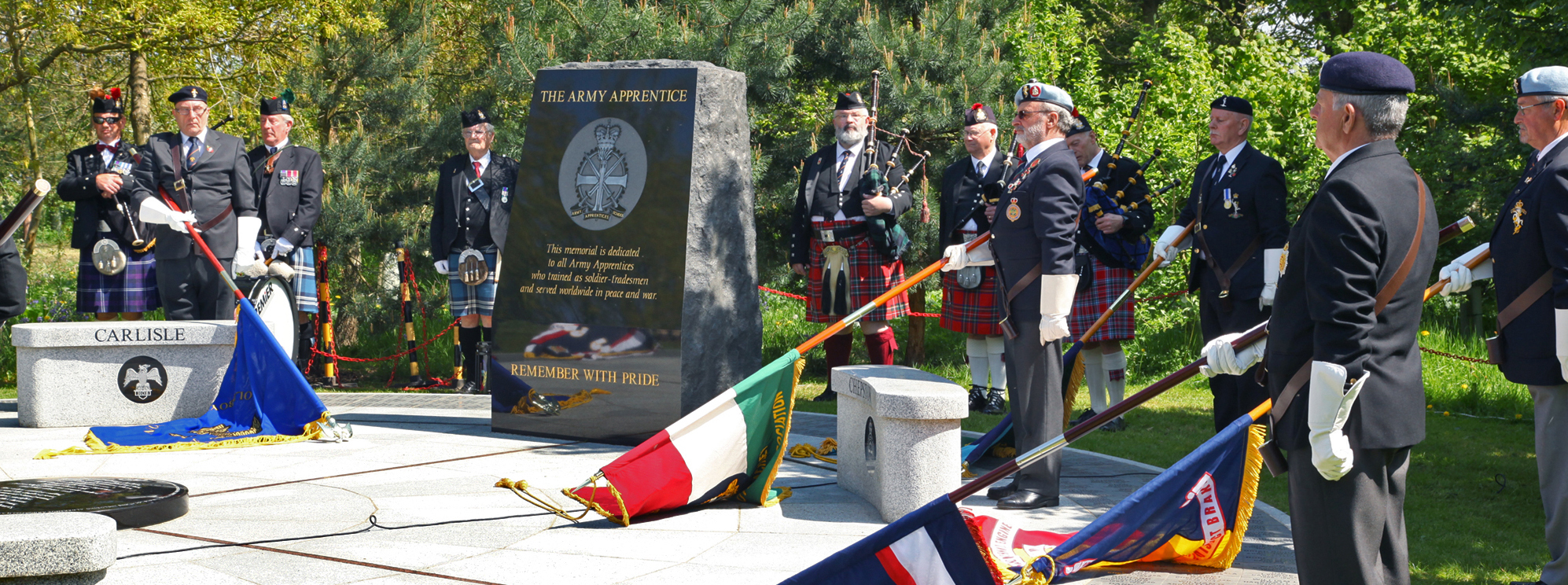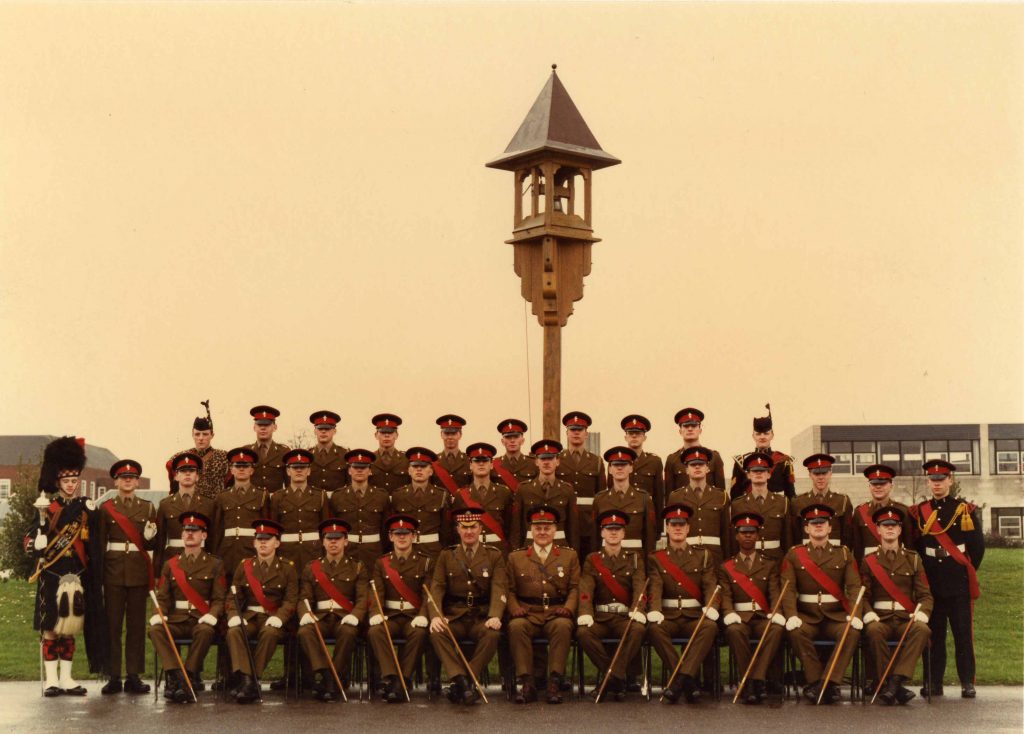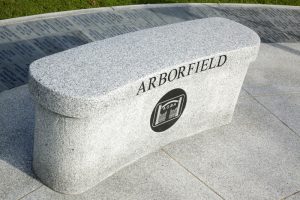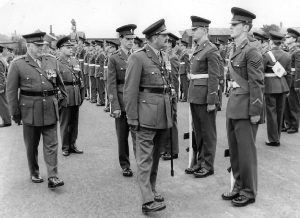The training of young soldier tradesmen in the Army presented the engineering and technical Corps of the British Army with a valuable source of manpower for many years. The system of centralised Technical Schools for boys started as far back as 1923. Prior to the outbreak of World War II, Artificers RA, Armourers RAOC and other tradesmen for technical corps, were trained at Woolwich, Hilsea and Chepstow. Boys were taken directly from school and taught a trade, in a manner similar to that seen in British industry throughout the 50s, 60s and 70s. The major difference, of course, was that military apprentices were also trained as soldiers, so that they could take their proper place in those regiments or corps to which they would eventually be posted.
By the early 1930s, with mechanisation going full-speed ahead, it was clear that the Army would be unable to obtain sufficient tradesmen for its needs from adult enlistment and the existing apprentice training units. Two hundred Fitter Apprentices were recruited and enlisted on October 1st 1936, of whom half started their training at Bramley and the other half at Hilsea. During the summer of 1938, around a dozen Bramley apprentices went on to Woolwich, to be trained as Instrument Mechanics, whilst those of that first Bramley intake, plus a few from Hilsea, proceeded to Aldershot to complete their training.
Some of the older apprentices, who completed their training in 1939, served in France with the British Expeditionary Force (BEF) in various Field Workshops. There was still a shortage of specialist soldier-tradesmen however, so it was decided that three new Army Technical Schools would now be built – at Arborfield, Chatham and Jersey. These schools were to produce tradesmen for the special needs of the RAOC, RE and RASC respectively.
The Army Apprentices School at Arborfield was originally designed to house and train up to 1,000 apprentices at a time. Most of the civilian instructors had served in the Forces and thus knew the requirements of the job. Due to their long service, they had the knowledge and experience to put the interests of the boys above all else. The roads around the camp were all named after famous men with an engineering background, such as Nuffield, Faraday, Whitworth, James Watt, Stephenson, Kelvin and Newton.
Many of the serving ‘officers and gentlemen’ became legends within the boys’ memories, particularly during those early years of the school’s history. Many tales are told, over and over again, about the exploits and behaviour of such men as ‘Ben’ Cook, Grenadier Guards, who was the original RSM between 1939 and 1941. He was then commissioned and took up post as the School’s QM in the rank of Captain. He was largely instrumental in laying out the playing fields, gardens and hedgerows that all ex-apprentices of those times remember so well.
RSM Cook’s replacement will also be long remembered in the annals of Arborfield. He was RSM McNally MBE, Scots Guards, who filled the post of School RSM for an unbroken stint of some fifteen years, from 1941 until 1956. After that, the post became more regularly filled on much shorter appointments, drawn almost exclusively from the ranks of ‘The Guards’, of one variety or another. The only exception to this long tradition was RSM Roy Matthews REME, who served a two-year spell during the late Nineties.
By the 1990s, however, the original barracks were replaced with those of a more modern construction. But, to many generations of ‘old boys’, they were regarded as far inferior to the original wooden and corrugated iron accommodation ‘spiders’ and other buildings.
Arborfield, known affectionately as ‘The Boys’ School’, was the last surviving of Army apprentice soldier trade-training establishments, with a history stretching back some 65 years. However, during its long life, the establishment was known by a number of different names: –
* Army Technical School (Boys) 1939 to 1947
* Army Apprentices School 1947 to 1966
* Army Apprentices College 1966 to 1982
* Princess Marina College 1982 to 1995
* Army Apprentices College (again!) 1995 to 2000
* Army Technical Foundation College 2000 to Aug 2004
In 2004, it was decided that apprentice training at Arborfield would cease completely. And so it was, that on the 12th August 2004, the last intake of Arborfield Army Apprentices passed out from the College, to move into man’s service. However, the Arborfield Old Boys’ Association will continue to serve all those who served at Arborfield, whether boy or girl army apprentices, as well as all those military and civilian members of the permanent staff.
Although Army Apprentice training in the British Army has now ceased, there is still the opportunity for young men to join the Army’s Technical Corps. As Junior Soldiers they start their career at the Army Foundation College (AFC) in Harrogate. Here, to start off with, they share a common cap badge, that of the AFC, with those recruits destined for the teeth arms. All Junior Soldiers spend 42 weeks at Harrogate, with the emphasis being on Military training, education, fitness and sports. After an initial period of eight to ten weeks, those destined for the technical Corps such as REME, Royal Signals and Royal Engineers, exchange their College cap badges for those of the Corps they hope to join. During the remainder of the year spent at Harrogate, each Junior Soldier has the opportunity to request a change of cap badge. Until recently, the large majority of permanent staff instructors have been from the teeth arms, with the result that some recruits may have been dissuaded from continuing into their chosen technical Corps. However, there is now both a REME Major commanding one of the training Companies, as well as a REME ASM in post, providing a wider knowledge of REME to those destined for it.
Many ex-Arborfield boys went on to attain high rank within their chosen careers, and the School can be justifiably proud of its tremendous output. But perhaps the ‘glue’ that still links most together in these present times is the Old Boys’ Association, which started its life in the late Forties. It became ‘becalmed’ for a few years afterwards, but gracefully rose again in 1977, after the arrival of Colonel Barry Keast – the first ex-apprentice to come back and take up the post of Commandant. It is largely due to his efforts, and those of the staff ‘in house’ at that time, that the AOBA continues to thrive. The Association is still able to publish regular issues of its Newsletter, and hold annual reunions, which enable many of its readers to keep in touch with each other in all corners of the world.





I was a 49A Apprentice Tele-Mech. Ex 22274003 Edward F Brigham. I used to be a Member of the OBAN
Please will you send me details of the Association now? I am interested in re-joining. I would love the latest copy of The Magazine.
Thank you.
Edward [email protected] or
42 Sea Front, Hayling Island, Hampshire, PO11 9HL
Hi Edward,
great to hear from you – and for sure you will be make very welcome if you re-join the AOBA.
You will need to head over to their website and click the re-join link here …. http://arborfieldoldboys.co.uk/index.php/2014-03-12-15-59-00/application-forms/14-aoba-re-activation-application-form
Happen to know that your AOBA membership number is 1900. and that as you were in 49A you will be over 80 years old? as such your membership fees are only £1 per year……
Look forward to seeing you at next year’s reunion in July …….
Cheers
David Schofield 65A
MY LATE HUSBAND 23534711 WILLIAM ARTHUR HAYDEN FOWLER (BILL FOXY FOWLER)
WAS IN THE 58 A INTAKE.
BILL WAS KILLED 30TH SEPTEMBER 1967 IN GERMANY
OUR ARMY BOXES CAUGHT FIRE WHILE IN STORES AFTER BILL DIED.
WONDER IF ANYBODY REMEMBER BILL (HE BOXED WHILE HE WAS THERE)
IF SO DO YOU HAVE ANY PHOTOS OF HIS TIME THERE.
THANK YOU SCOTTIE FROM AUSSIE